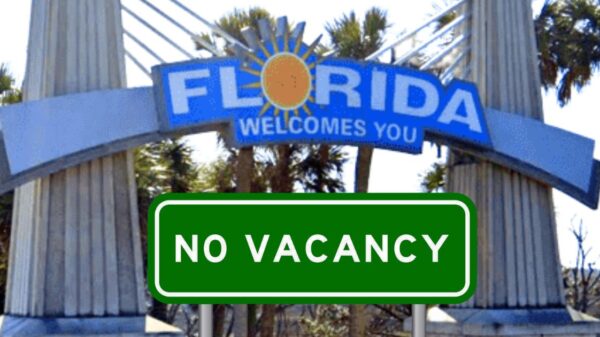Beginning July 1. homeowners who are members of a Homeowners Association (HOA) will find some restitution when it comes to their property rights
Florida Gov. Ron DeSantis signed HB 1203, which outlines a series of measures restricting the overreach of local HOA groups in passing fines and restrictions on local neighbors.
The new law bans HOA’s from:
Homeowners or their invited guests are prohibited from parking personal, business, or first responder vehicles (including pickup trucks) that are not commercial vehicles in their driveways or any other area where they have a right to park per state, county, and municipal regulations.
Fining residents for leaving garbage cans at the curb or the end of their driveway within 24 hours of a scheduled trash collection
Banning contractors or workers from the homeowner’s property.
Creating new requirements or rules for the interior of a home that is not visible from the street, a neighbor’s property, an adjacent common area, or a community golf course.
Requiring a review and approval of plans for a central air conditioning, refrigeration, heating, or ventilation system that can’t be seen from the street, a neighbor’s property, an adjacent common area, or a community golf course.
Not allowing a homeowner to have a vegetable garden that can’t be seen from the street, a neighbor’s property, an adjacent common area, or a community golf course.
Laying a fine on homeowners for leaving holiday decorations or lights longer than indicated in the HOA’s governing documents without prior notice. If the association provides written notice of the violation to the homeowner, the homeowner has one week to take the decorations down.
An HOA must now comply with certain educational requirements approved by the Department of Business and Professional Regulation, including 4-8 hours of yearly continued education courses.
Every HOA must keep its official records (bylaws and amendments, articles of incorporation, declaration of covenants, current rules, meeting minutes, insurance policies, contracts, financials, budgets, tax returns, voting records, etc.) for at least seven years. Destruction of accounting records within that time is a first-degree misdemeanor.
If a law enforcement agency subpoenas an HOA for its records, they must provide a copy or make them available for copying within five business days.
Every three months, a homeowner may make a written request for a detailed accounting of any and all money they owe to the association related to their parcel, and get it within 15 business days. If the board does not comply, any outstanding fines the person owes older than 30 days that they never received written notice of will be waived.























